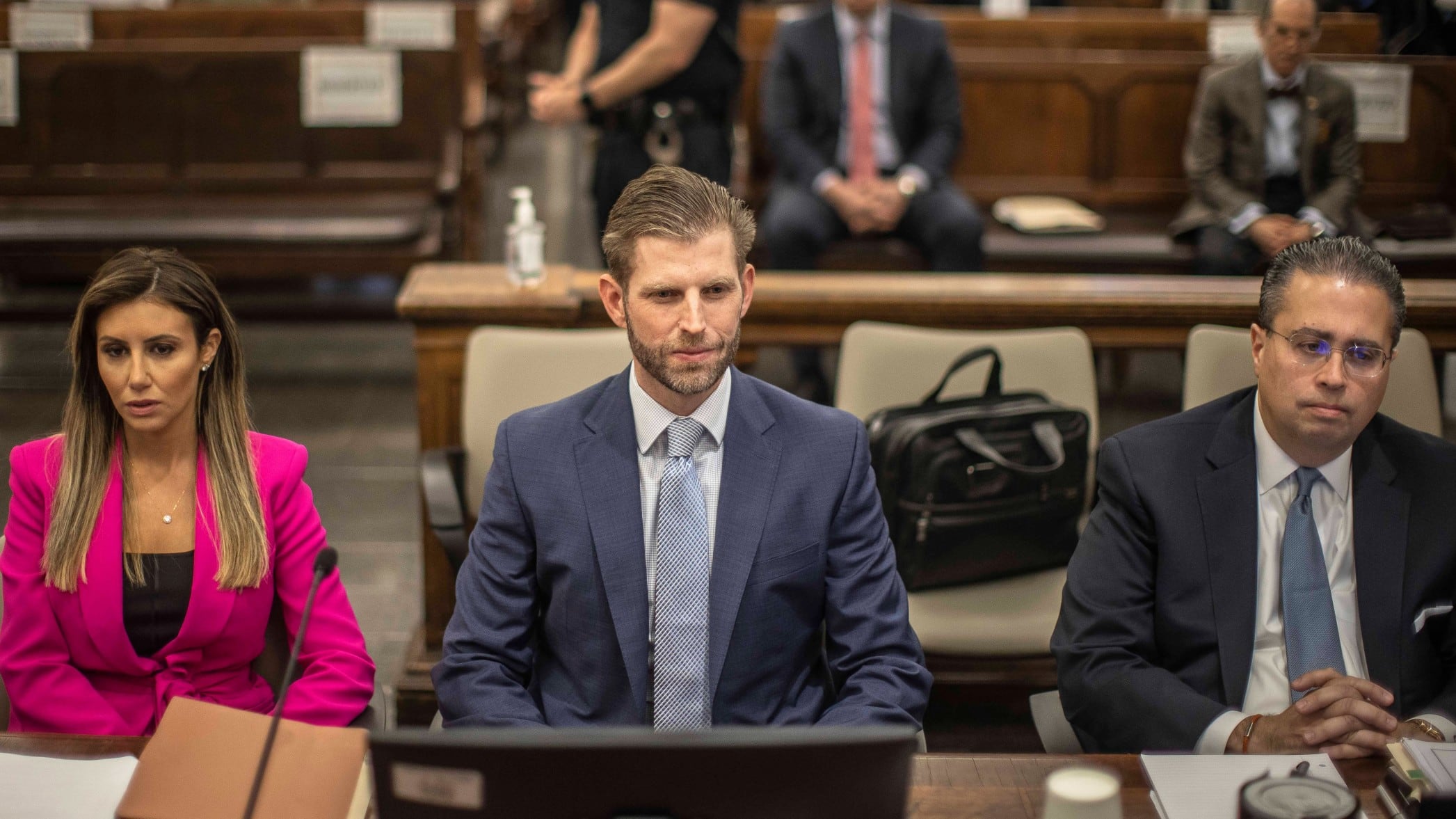By Jennifer Peltz
With Donald Trump due on the witness stand next week, testimony from his adult sons in his civil business fraud trial wrapped up Friday with Eric Trump saying he relied completely on accountants and lawyers to assure the accuracy of financial documents key to the case.
Meanwhile, lawyers for the ex-president, his sons and their company again pressed allegations that Judge Arthur Engoron is being improperly influenced by his principal law clerk. Engoron strongly denied the claims and, as he had a day earlier, told the attorneys not to broach the matter again.
Donald Trump is scheduled to testify Monday in the case, which comes as he leads Republican 2024 presidential hopefuls and fights four separate criminal cases.
The unrelated civil case, brought by New York Attorney General Letitia James, accuses him, his company and executives of deceiving banks and insurers by exaggerating his wealth on his annual financial statements.
Trump and the other defendants, including sons Eric Trump and Donald Trump Jr., deny the allegations.
“We’re going to win this thing. I promise you we’re going to win it because we haven’t done a damn thing wrong,” Eric Trump said outside court.
He and his older brother are executive vice presidents of the family's Trump Organization, and they became trustees of a trust set up to run the company when their father went to the White House.
The sons signed, for example, yearly letters that certified their father's financial wherewithal to lender Deutsche Bank. As Donald Trump Jr. did in testimony earlier this week, Eric Trump said he trusted company finance executives and an outside accounting firm to ensure the information was correct.
“I would not sign something that was not accurate,” he said Friday, his second day on the stand. “I relied on one of the biggest accounting firms in the country. And I relied on a great legal team. And when they gave me comfort that the statement was perfect, I was more than happy to execute."
He testified anew that he didn't dig into the details of his father's “statement of financial condition.” James' office says the documents contained grossly inflated values for assets ranging from Trump Tower in New York to the Mar-a-Lago club in Palm Beach, Florida.
Emails shown in court indicate that Eric Trump was asked for information to help complete the statement in 2013, and another Trump Organization executive has testified that the scion was on a video call about the document as recently as 2021. He reiterated Friday that he had no memory of the call.
“I get thousands of calls,” he said, saying he picks up his phone at 5 a.m. and puts it down at midnight.
Speaking to reporters outside the courtroom, Eric Trump called the case a “charade” and waste of taxpayer dollars. Echoing his father, he also cast the case as a political “witch hunt.”
James and Engoron are Democrats, and his principal law clerk, Allison Greenfield, ran as Democrat for a civil court judgeship last year.
A Trump social media post disparaging Greenfield a month ago spurred a partial gag order that bans parties to the trial from commenting publicly on the judge's staff. Fines followed, after Engoron said the ex-president violated the order.
Meanwhile, Trump's lawyers have repeatedly complained in court about the clerk's notes to the judge during testimony.
The contents of the notes have not been disclosed. But the attorneys argue that the messages indicate possible bias against their case.
Engoron insists that he has an “absolute, unfettered right” to input from his clerk, and that he doesn't see how such advice is a bellwether of bias. He told the defense Thursday that he might expand the gag order to include attorneys if anyone refers to a member of his staff again.
After the judge started Friday's court session by saying he hoped he'd made himself clear, Trump attorney Christopher Kise argued anew that if the judge was “receiving input from someone with potentially demonstrable bias — or, at least, there’s an appearance of that — we have to make a record of that.”
A record documenting questions or objections that were raised during a trial is key to any appeal.
Engoron said the record had been made, and he didn't want “any further comments about my staff and how I communicate with them.”
“Later Friday, he issued a written order barring all lawyers in the case from making public statements about “any confidential communications, in any form, between my staff and me” and threatening “serious sanctions” for any violations.
Associated Press writer Alanna Durkin Richer contributed from Boston.













